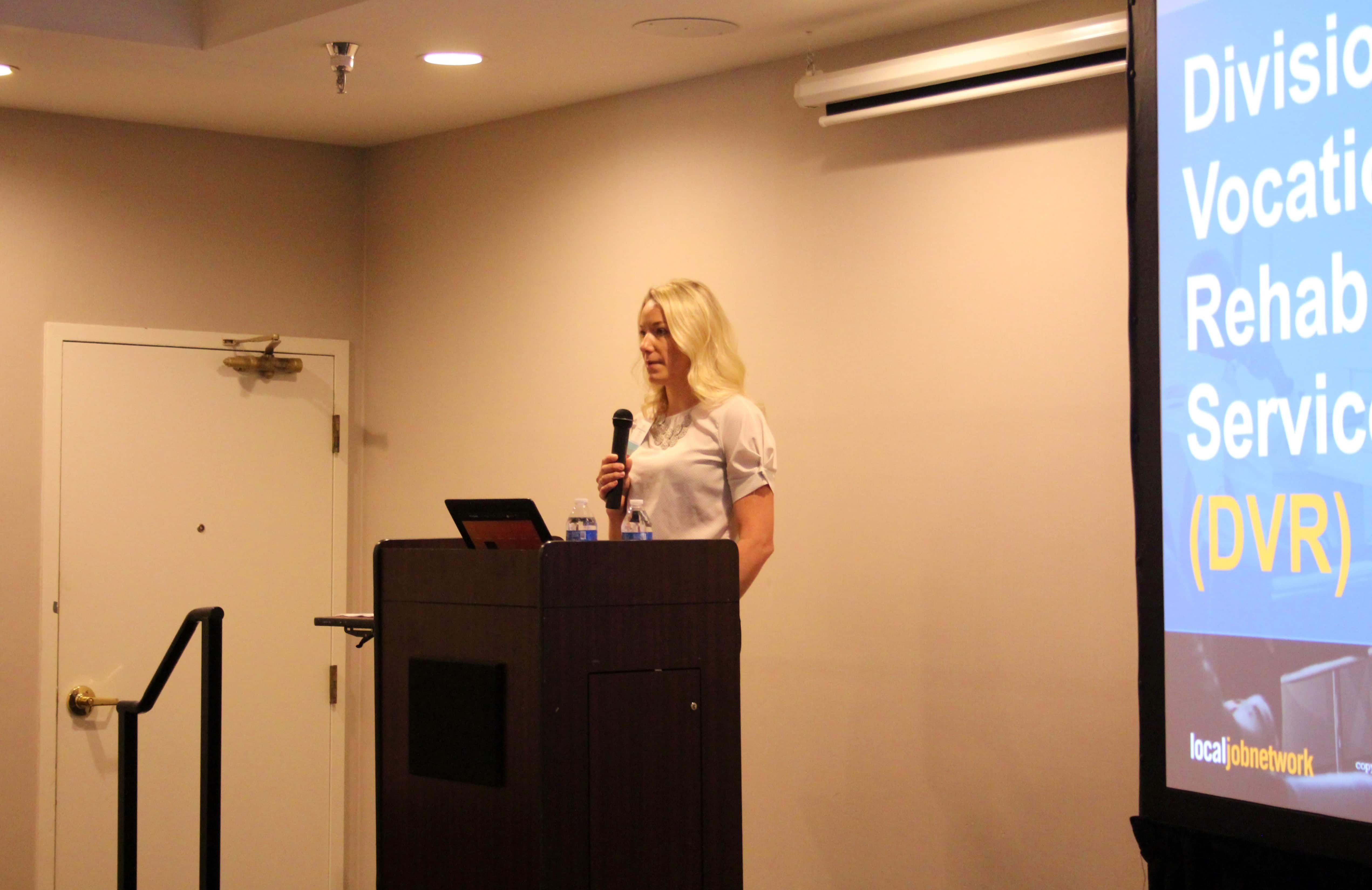The AZ Industry Liaison Group just concluded its 44th Annual Conference last Oct. 17-18, gathering over 85 federal contractors, consultants, including representatives from the OFCCP District office, in Phoenix, AZ to discuss trending topics and share best practices.

Many contractors are not aware of the varied resources present in their communities that can help them with outreach. Anne’s presentation identified those resources that should be included as an essential part of an employer’s outreach portfolio.
On the government agency side, employers should leverage the various service providers such as the:
- Local Veteran Employment Representatives (LVER) and Disabled Veteran Outreach Program Specialists (DVOP) who provide employment services to veterans;
- Division of Vocational Rehabilitation (DVR) who provide services to individuals with disabilities;
- One Stop Career Centers that integrate services authorized under the Workforce Innovation and Opportunity Act; and
- State Job Banks which are the state workforce agency websites that in-state employers can post their jobs to and receive candidate referrals from.
These agencies also have workforce programs that range from providing pre-screened candidates to tax credits for hiring certain applicants.
In addition, Anne pointed to a universe of private sector non-profit organizations that provide job placement and training services to veterans and people with disabilities that would make excellent recruitment partners.
Anne highlighted that each of these entities has a presence in every major city and employers should establish a connection with at least one contact from each of them, as an essential outreach resource. To illustrate this point, she pulled up a robust list of organizations in a couple of sample demographic areas using LocalJobNetwork’s extensive database of 15,000 community organizations, the variety of demographic groups they serve, and showed how easy it is to find their contact information and reach out to them directly.
Also shared with the audience are some best practices such as making job advertisements inclusive, investing time and effort in developing ongoing relationships with recruitment sources, tracking and documenting outreach, and evaluating outreach efforts to improve results. Anne also challenged the audience to think critically about whether the problem lies in the lack of or poor quality of outreach, or if diverse candidates are just not making it through the employer’s selection process. As such, employer best practices should include regularly evaluating selection procedures to ensure they are fair and devoid of bias, and reviewing disposition codes to detect any discriminatory patterns or practices.
Lastly, Anne emphasized the need to train recruiters and ensure that everyone involved in the hiring process, staffing agencies included, are aware of the employer’s affirmative action and EEO obligations, the need to undertake outreach activities, and why it is critical to document these efforts.
